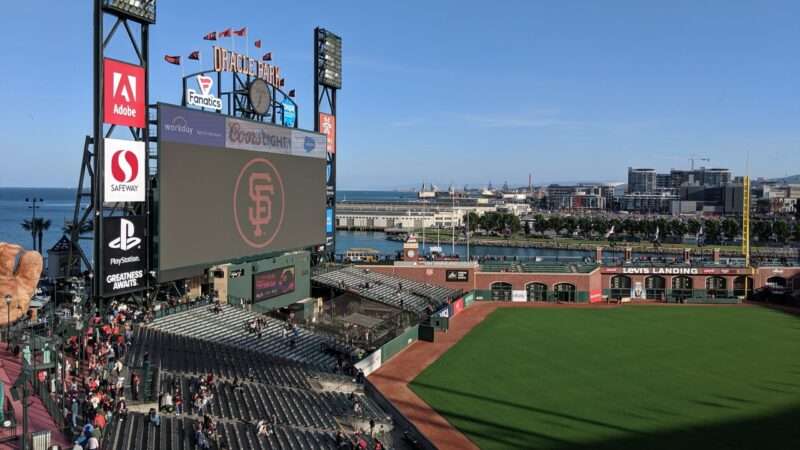
Thursday marks Opening Day of the 2022 Major League Baseball season, which means it's open season for hot takes about how to fix what ails the National Pastime—disputes between labor and management, declining attendance and TV viewership, increasingly dull on-field product, etc.
The New York Times Wednesday probably won the MLB preseason hate-clicks derby by publishing a Matthew Walther op-ed under the headline, "Baseball Is Dying. The Government Should Take It Over." It's at least semi-satirical, so not worth getting exercised over (beyond the basic responses of "No it isn't," and "No it shouldn't"), but both the essay and the spectacle of an ambivalent Opening Day are timely reminders that much of what plagues the sport is not solvable by government, it emanates from government.
It's weird that baseball would still require rescuing, given that Congress as recently as 2018 passed the Save America's Pastime Act (see how semi-satire works?). That law, which probably never could have been passed as a standalone bill, was actually crammed into a must-pass omnibus spending whatever, and as such is a fine example of what happens when you mix government with baseball.
Sold both by gullible congresscritters and arms-twisted Minor League Baseball (MiLB) owners as the last, best hope for maintaining small-town professional ball, the act in fact was something closer to the opposite: a way for bottomless-pocketed Major League Baseball (MLB)—which pays for, and dictates terms to, the captive feeder leagues—to use the threat of franchise-contraction for a federal exemption from labor laws, so that minor leaguers could continue being paid as low as $1,100 a month for their seasonal work.
Within seven months of the act's passage, MLB started leaking out the names of MiLB franchises that would be euthanized anyway. By December 2020, the deed was done—40 of the original 160 teams were summarily severed. As I wrote in a feature on the topic last year, "Local governments were suddenly on the hook for a quarter-billion dollars' worth of investment in event spaces that no longer held events."
Hmmm, why would local governments invest in professional sporting facilities? Let's hit the refresh button on one of the worst recurring examples of mixing public sector activity with a private sector business: Stadium welfare.
Giving out subsidies and tax breaks for sports business owners is self-evidently terrible enough, as have concluded virtually every non-corrupted economist who has ever studied the issue. (The eminent domain used for these projects, too, constitute abuse egregious enough to inspire Ry Cooder albums.) But let's not sleep on how such a culture of welfare dependency has been bad for the recipients, and especially to fans of the allegedly boosted sport.
By acclamation, the single most spectacular facility to watch a football game is SoFi Stadium, home to both the Los Angeles Rams and Chargers, and host to the most recent Super Bowl. Unlike virtually every other National Football League facility constructed over the past three decades, SoFi was built without government subsidies.
In baseball, the handsomest stadium I've ever set foot in is Oracle Park, home to the San Francisco Giants. Opened in 2000, it was the first ballpark built without public money since the 1960s. Why, it's almost as if people who spend their own money on a thing take extra care to make it real purty!
Self-funders are also incentivized to stay put, rather than jilting the local fan base. "When governments become landlords," I wrote last year, "sports businesses, no matter how deep their pockets, start acting like tenants: always eyeing the exits for a potentially better deal. If you build it, they will leave."
Baseball doesn't need to be nationalized, it needs to be privatized—no more subsidies, no more finger-wagging congressional hearings, no more State of the Union address moralizing, no more unique-to-this-one-sport carve outs from federal law. It's time for these welfare queens to pull themselves up by the bootstraps, and compete for audience share as if their bottom lines depended on that as much as it does on the ribbon-cutting innumeracy of dull-witted politicians.
The post Major League Baseball: Don't Nationalize it, Privatize it! appeared first on Reason.com.







